10 Years Ago, Gaming Industry Notables Were Hit And Miss Regarding Free-To-Play Gaming
There are only a few days left in what future historians will refer to as “the teens,” in the same way that I referred to the years 1910 to 1919 as “the teens” when I was growing up and yes, that makes me feel old. We can't just call the 2020s “the twenties” because that will get too easily confused with the 1920s. I suggest we go with “the perfect eyesight decade.” Who's with me?
Anyway, a lot has happened in gaming, especially free-to-play gaming, over the last decade. Nobody could predict just how prevalent it's become, and how some of the biggest games on the planet – League of Legends, Fortnite: Battle Royale, World of Tanks, and more – are all free-to-play. That's not even taking the mobile world into account, and that's an even bigger chunk of the revenue pie than PC and console gaming.
And when I say that “nobody could predict” free-to-play's rise, I mean it. Even some of the biggest names in the industry couldn't wrap their big brains around the concept in the latter parts of the last decade, as F2P gaming just started to find its foothold in the Americas and Europe. To prove it, I plumbed the depths of the internet to find some, shall we say, “curious,” opinions on F2P games from 2008-09. They're presented below not simply for your amusement but also to serve as a reminder that even highly paid people whose job it is to understand and analyze trends in an industry can get things very, very wrong. And so can poorly paid schlubs like me.
June 9, 2009: What Are The Rewards Of “Free-To-Play” MMOs?
This piece from Gamasutra starts off by saying, “Yes, good money can actually be made in the rapidly-growing world of free-to-play massive multiplayer online games (MMOs),” a stunning realization that I admonish journalists from making these days, but that I'll let slide a bit when it was asked a decade ago. That's only the first SHOCKING REALIZATION to come from this piece, which now reads like “Free-to-Play For Dummies.”
Daniel James, the CEO of Three Rings Design, which made Puzzle Pirates at the time, made the surprising decision to publish his game's revenue at the time, which came to about $50 per paying user per month, or $230,000 per month from around 5,000 players, about 10% of the total monthly player base. The piece acknowledged that a 2008 press release from Three Rings stating that over seven million accounts had been created, showed “that the 'registered user' metric is not particularly helpful in extrapolating revenue-based success stats.” Another amazing fact!
The second interviewee, legendary Ultima Online and Star Wars Galaxies designer Raph Koster, realized that, by not requiring $15 per month, you might get more people wiling to plunk down a buck or two. But he's skeptical of the free-to-play model because it “doesn't have the commitment fallacy in its favor … A subscription can be seen … as essentially making a commitment.” In other words, once you have their money, you got the suckers, which is a great way to think about your business and your customers.
Unlike James, Koster said he wasn't ready to share financial info regarding Metaplace, his new (at the time) online world, but that he'd be glad to once there are numbers to share. Six months later, he announced that the consumer-facing service was shutting down.
The third person interviewed for the piece was Lightspeed Venture Partners Managing Director Jeremy Liew, who quoted numbers not dissimilar to what James did, but for popular (at the time) free-to-play games like Club Penguin, Habbo Hotel, and RuneScape. He also offered the controversial notion that a free game doesn't have to be high-quality: “you can practically throw anything up – even if it's buggy, even if it's not feature-complete … you can either fix it and watch what your customers do – or abandon it altogether. That's the great thing about the Web and about free-to-play.”
His attitude rankled one commenter, who said:
“I'm disgusted with Jeremy Lliew's [sic] view on encouraging poor quality in free-to-play, as should any pc gamer or publisher. Our users deserve better.”
The logo next to that commentor's name? Perfect World Entertainment.
September 11, 2009: Free-To-Play MMO Market Too Crowded, Says Publisher
Shut it all down, guys – the F2P market is too crowded.
So said J. Mark Hood of Reality Gap, makers of Monato Espirit and Battleswarm: Field of Honor, two games I've never heard of, and probably for good reason. He was at least correct in saying that casual titles and Asian MMO ports are (were) all the rage, and that developers are turning to F2P because they feel like they can't compete with big companies like Activision-Blizzard and EA.
For what it's worth, Reality Gap seems to still exist, with a Twitter account that has 31 followers and has barely been active in the latter half of the current decade. Its website promises “a steampunk gastropub” that's “Coming Soon to Irvine, California,” which honestly sounds a lot more interesting than another free-to-play MMO.
April 9, 2009: Is Sony's New Online Game Cashing In On Our Kids?
Almost as good as “F2P is too crowded” is “F2P is profiting off kids.” Granted, today that tends to come in the form of anti-loot box fervor, but back in ye olde days, any kind of microtransactions found in games marketed toward youngsters was liable to come under scrutiny.
That was the case with Free Realms, the then-upcoming Free MMO from Sony Online Entertainment. (SOE, as you might recall, was one of the biggest names in gaming back at the close of the last decade, and, without looking it up, we'd wager they've had a fantastic time of things over the last 10 years.) President John Smedley described the game as being easier to monetize than “the outside observer” might think. “We've built a game that has a lot of value for free players, but we've put in a lot of hooks.” Smedley would later go on to say that he hated having to defend microtransactions in free-to-play games.
Not everyone agreed with Smedley's monetization ideas. At the time, RuneScape relied solely on advertisements and optional subscriptions to make money. That led Jagex CEO Mark Gerhard to denounce microtransactions, calling them “sadly misleading” and a “stealth tax.” “Ethically you can say it devalues the product,” he said. Runescape added microtransactions three years later and they've been a rousing success.
June 5, 2008: MMOG Business Models: Cancel That Subscription!
More from John Smedley! A year before Free Realms launched, he, along with the aforementioned Daniel James of Three Rings Design and EA Mythic's Mark Jacobs, were asked what they thought of free-to-play gaming. In addition to touting Free Realms, Smedley said that his company was “taking a wait-and-see attitude” with monetization for The Agency, in which SOE waited until March of 2011 before pulling the plug.
He declined to comment on DC Universe Online, which launched in early 2011 and and went free-to-play less than a year later. As for SOE's other games, Smedley floated the possibility of being “able to get new life out of an older MMO by going away from the subscription model and adding microtransactions” but that it was “probably unlikely.” Very unlikely, indeed!
We'll give Smedley credit where it's due, though. He went on to say that “As time goes on, it's going to be easier to reach new, non-typical gaming audiences with new business models, especially if they've never subscribed to games in the past and are reluctant to do so.” That was rather prescient, considering the explosion of games for all kinds of players that we've had in the 2010s, and especially the market for casual, mobile-friendly titles.
James saw a similar trend, commenting on the even-then legions of “casual gamer[s] whose numbers are in the hundreds of millions worldwide.” He said that if companies can figure out how to monetize that audience, “then clearly there is a much greater potential than in the hardcore PC game industry, in the MMORPG business, or in the console business.” He said that 11 years ago, or 10 years before Blizzard asked if we all had phones.
Finally, there's Mark Jacobs, who, even today, is as old-school as they come regarding subscriptions vs. free-to-play games. Camelot Unchained will have subscriptions, and in 2008 he felt the same way about Warhammer Online: Age of Reckoning. “If you want to make a real profit on your game, subscriptions are the only way to go.” He prefaced that by comparing a big and expensive AAA game to smaller, “two-dimensional” games – possibility an aside to James' Puzzle Pirates – but it's been abundantly proven that this is false. As for Warhammer Online, even with a required subscription, it never made that profit; it shut down on Dec. 18, 2013.
Like James, he also bumped up against the way companies announced player numbers, saying that he'd prefer to have one million paying customers than 20 million customers, of which only one million are paying. You'd have a hard time pushing that narrative today, however.
And, just like Square Enix after him, he bristled at the notion of having to do math. “I'm a very simple guy. If we get a million subscribers each month and we charge 15 bucks a month, that's $180 million a year. There's no need to wonder how many people are going to buy how many micro-transactions.” The obvious choice, then, would have been to have a subscription and microtransactions. Then you'd be able to afford a calculator, or even a full-fledged accountant, to figure out all those complex numbers.
Again, on the plus side, Jacobs said that he doesn't think the MMOG sector will agree on any particular payment model any time soon. He rightly scoffed at hourly billing, but I don't think he could have foreseen season passes or the explosion of loot boxes. “Somebody, I'm sure, will come up with something interesting, because they always do,” he said.
As a final note for this section: Yes, I poke fun at industry “experts” for making predictions or statements that don't hold up 10 years later. And yes, all of these men were trying to sell you something, which meant that they had to tell you that their way of getting money from you was the best, and everyone else's ways were terrible. That's something I'll always call out, because those tunes usually change as financial situations shift. (Jacobs, to his credit, is as committed as ever to subscriptions, so at least he's remained consistent.)
But as you've no doubt discovered with my less-than-serious predictions every year, it's tough to see into the future. It's really tough to predict trends, even when – or maybe because – you're deeply embedded in the industry you're trying to predict. Some of that “We're the best” thinking will permeate your consciousness and influence your thought processes, harming your objectivity, but part of the reason your company might adopt a certain model is because you honestly believe it to be the best. So let this mostly comprise an exercise in fun, rather than a condemnation of business practices or corporate-speak. Except that Runescape thing. That was pretty lousy.
April 30, 2009: Five Free-To-Play MMOs That Are Ahead Of The Class
Let's finish up with something a little light-hearted. On the site that used to be the original Massively.com (not MassivelyOP.com), Seraphina Brennan, who would go on to work for CCP Games, Turbine, and Trion Worlds, listed her top five free-to-play games (part one and part two). They were:
1. Free Realms: Shut down March 31, 2014
2. Runes of Magic: Still live.
3. Mabinogi: Still live.
4. Dungeon Runners: Shut down Jan. 1, 2010
5. Shin Megami Tensei: Imagine: Shut down Jan. 29, 2014 (Western) and May 24, 2016 (Japan)
Two out of five ain't bad, right?
Related Articles
About the Author

Jason Winter is a veteran gaming journalist, he brings a wide range of experience to MMOBomb, including two years with Beckett Media where he served as the editor of the leading gaming magazine Massive Online Gamer. He has also written professionally for several gaming websites.
More Stories by Jason WinterRead Next

Grinding Gear Games had a lot to announce about Path of Exile at last month's ExileCon.
You May Enjoy

It seems the problem isn’t with Eve, but with all of CCP’s weird spin-off projects.

This is why you don't take donations...

There is such a thing as too much information.

The game features fast-paced action combat and over a dozen playable heroes.
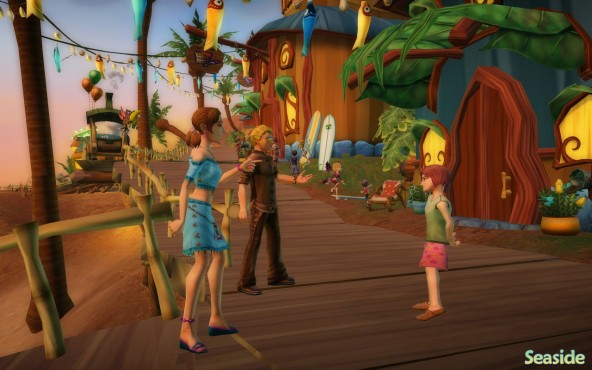
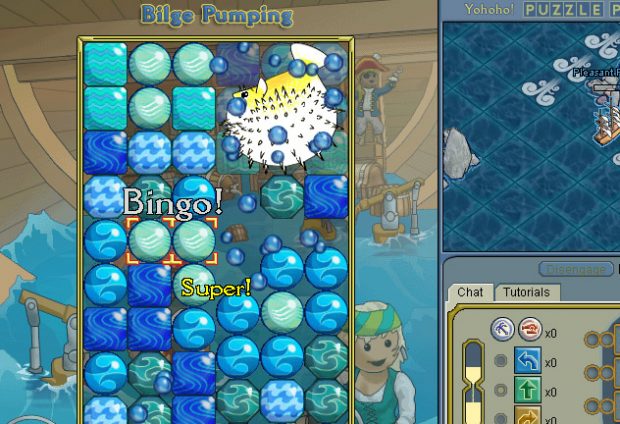
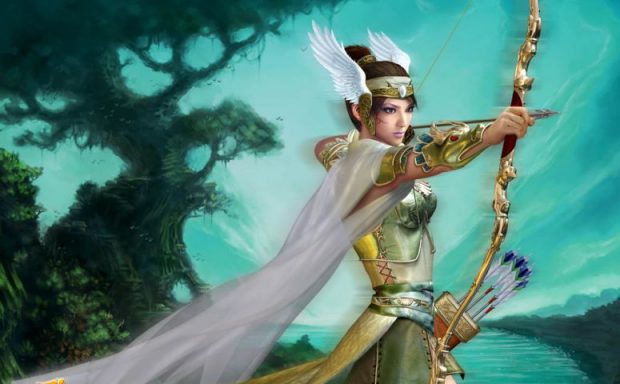


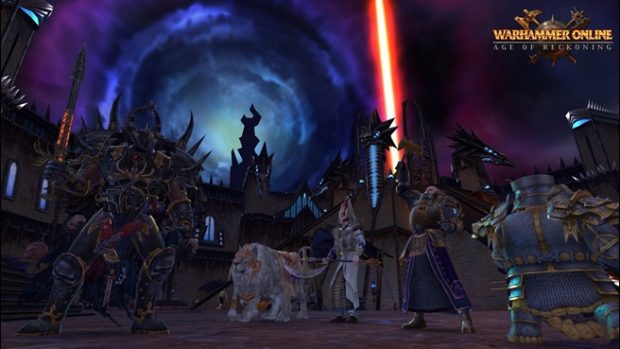
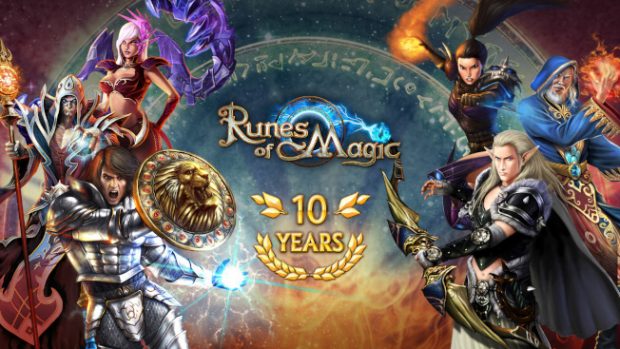
F2P is an excellent concept and has always been a way in my gaming life, I understand it well, I know how it works as a veteran PC gaming nutjob.
F2P is so dam good your mad if your not doing it. even wow would benefit far greatly.
Simple terms of F2P:
Its Free!!
Anyone can call in and play.
Players are in your game.
Players spend time in your game.
Players want to buy something.
Players leave when they want too and call back when they like.
So, Having a game with no one in it is totally useless, and of course unproductive for gaming devs.
Asia began doing f2p during the early years of mmo pc gaming, as they noticed large volumes of players and it gave those devs a real boost money wise and players in game. They really showed the way because you need players and the more, becomes the merrier. With that the majority of players are happy knowing the world they are in is free.